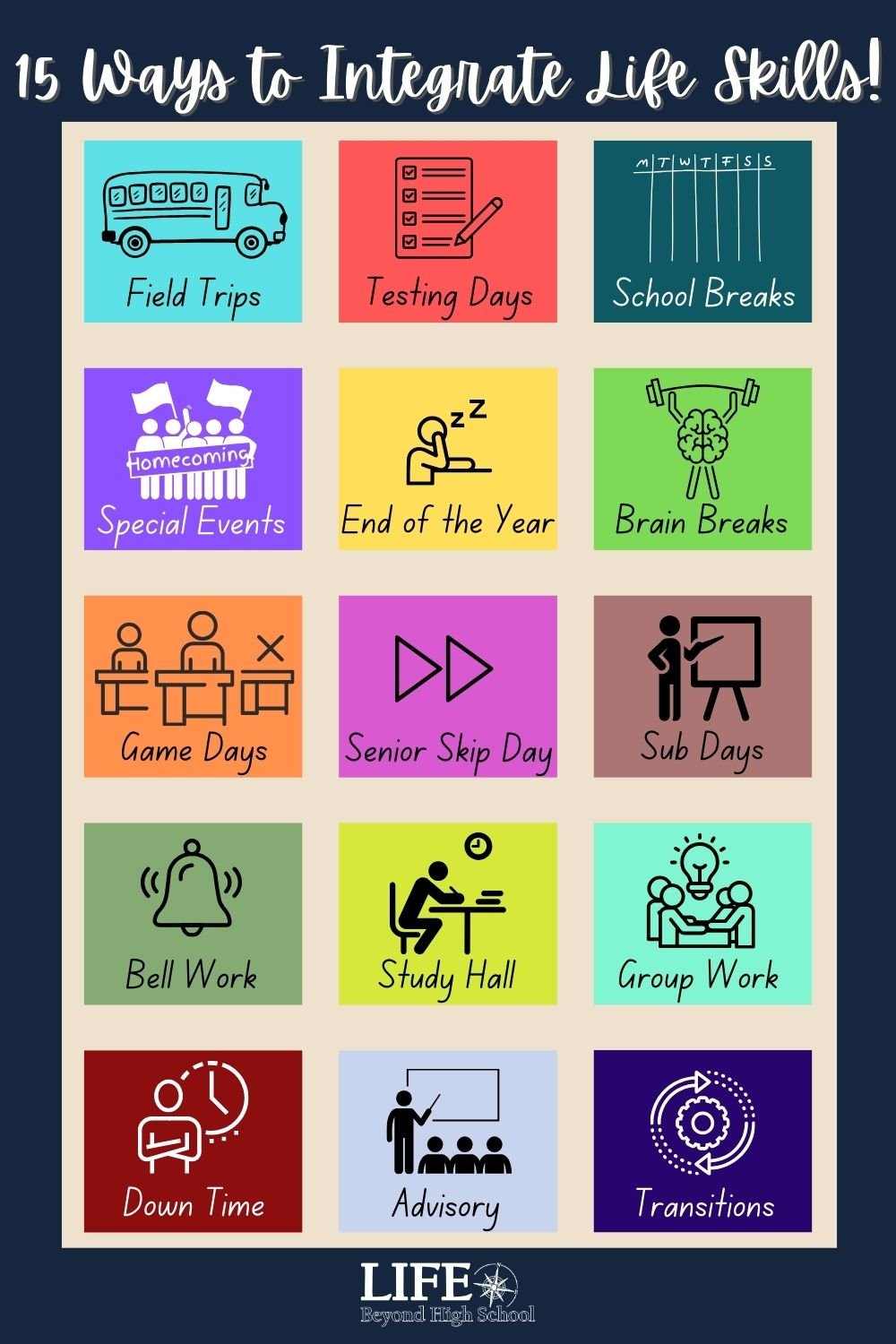15 Ways to Integrate Life Skills Into the School Day
A survey by Panorama Education found that 91% of U.S. adults–both parents and non-parents–believe schools should teach life skills.
Similarly, the Committee for Children found that teaching personal and interpersonal life skills helps students focus, creates a positive classroom environment, and improves their chances of reaching academic goals.
91% of people agree that schools should teach life skills.
Traditional academic subjects are undeniably important, but life skills matter too. A report from the International Association of Administrative Professionals found that 67% of HR managers would hire someone with strong soft skills, even if they lacked technical abilities. Meanwhile, only 9% said they would hire a candidate with exceptional technical skills but weak soft skills.
The pressure to cover subject content and prepare students for tests is real, and finding time for life skills can be tough. That’s where a good "sponge activity" comes in. It keeps students engaged, helps with classroom management, and takes the stress out of timing. No more panicking when a lesson wraps up 20 minutes early on a Friday afternoon! Plus, these activities let you introduce important skills that often get overlooked in traditional curricula.
In this context, “life skills lessons” prepare students for life after high school, covering postsecondary education, employment, and independent living. What makes these lessons so powerful is their real-world relevance. Most high schoolers—whether excited or nervous about adulthood—have plenty of questions. That curiosity makes “adulting” activities highly engaging.
Here are some easy ways to weave these lessons into your school day:
Bell Work: Start or end class with a quick life skills tip. Cover topics like time management, self-care, or goal-setting.
Transition Times: Use those in-between moments to touch on practical skills like understanding credit cards or filling out college applications.
Unplanned Free Periods: When a lesson wraps up early, fill the time with mini-lessons on conflict resolution, home maintenance, or basic budgeting.
Advisory or Homeroom Periods: Use these general skill-building sessions to discuss professionalism, networking, or job readiness.
During Projects or Group Work: Encourage teamwork, public speaking, and time management as students collaborate on assignments.
Field Trips: Turn travel time into a learning moment by practicing navigation, using public transportation, or managing a travel budget.
Before and After Breaks: Ease in or out of school routines with discussions on apartment hunting, job searching, or balancing school and work responsibilities.
Standardized Testing Days: After testing, use extra time to talk about financial aid, scholarships, or even car-buying basics.
Special Event Days: Non-traditional schedules (like spirit weeks) are a great chance to cover investing, insurance, or building credit.
End of the School Year: As students prepare for summer, focus on job hunting, career planning, or picking the right classes for their goals.
Brain Breaks Between Lessons: Use quick breaks to introduce budgeting tips, financial literacy basics, or how to get a driver’s license.
When Half the Class is Gone: If sports or activities leave you with a smaller group, dive into personalized topics like college searches and goal setting.
Senior Skip Day: Keep underclassmen engaged with lessons on college readiness, application strategies, and post-high school options.
Substitute Teacher Days: Leave sub-friendly activities on job applications, resumes, cover letters, and interview skills.
Study Hall: Offer optional workshops on test-taking strategies, stress management, or effective study habits.
Take those little bonus moments in your teaching day to work in some life skills!
Whenever you find time to introduce these lessons, one key to success is asking students about their interests. You can use the Free Adulting 101 Knowledge and Skills Inventory to gauge what matters most to them and tailor your lessons accordingly. The pool of resources at Life Beyond High School is always growing, and I’m working to address all of these needs over time. If there’s a specific topic you’d like resources for, just reach out, and I’ll add it to the list of upcoming lessons!




